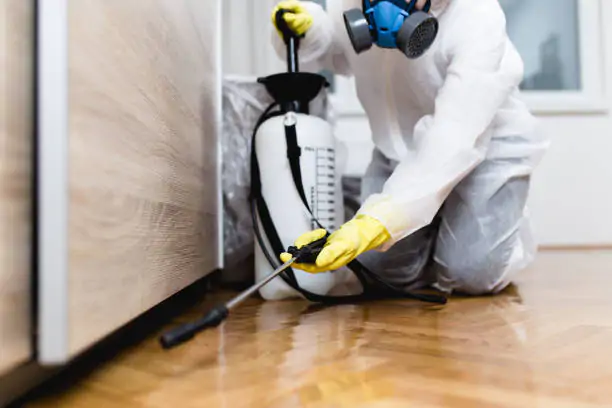Unwise DIY Plumbing Attempts: How Well-Intentioned Solutions Can Escalate Problems

In today’s era of easily accessible information and online tutorials, DIY plumbing has become a popular trend among homeowners seeking to save on repair costs and gain a sense of accomplishment. Armed with the belief that they can tackle any plumbing issue, many enthusiasts eagerly attempt to fix problems independently. While some succeed in their endeavours, there are numerous instances where these well-intentioned DIY plumbing “solutions” end up exacerbating the initial problem or creating new, more significant challenges.
In this comprehensive article, we will delve into the common mistakes made during DIY plumbing attempts, shedding light on the importance of knowing when to seek the expertise of professional plumbers.
Section 1: The Appeal of DIY Plumbing
1.1 Cost Savings and Empowerment
The primary allure of DIY plumbing lies in cost savings. You save on service fees when you can fix a leaky faucet or unclog a drain without calling a professional. Additionally, DIY plumbing can be empowering, giving homeowners a sense of accomplishment and self-reliance.
1.2 Online Tutorials and Misleading Confidence
The abundance of online tutorials and step-by-step guides fosters a sense of confidence among homeowners, making them believe they can tackle any plumbing issue. However, not all plumbing problems are equal, and the complexity of certain repairs often exceeds the scope of DIY knowledge.
Section 2: The Dark Side of DIY Plumbing
2.1 Temporary Fixes That Mask Underlying Issues
One common mistake in DIY plumbing is applying temporary fixes to seemingly straightforward problems. For example, using a quick-fix tape to stop a leak may work temporarily, but it fails to address the underlying issue. Eventually, the problem will resurface, causing more damage and increasing repair costs.
2.2 Incorrect Tool Usage and Damage to Plumbing Systems
Improper use of plumbing tools can lead to unintended damage to pipes, fittings, and fixtures. For instance, excessive force when using a wrench can strip threads or crack pipes, resulting in more leaks and expensive repairs.
2.3 Overuse of Chemical Drain Cleaners
Chemical drain cleaners are often the go-to solution for clogged drains, but they can do more harm than good. Harsh chemicals can corrode pipes and harm the environment. Furthermore, these cleaners may not effectively clear stubborn clogs, causing frustration and further blockages.
2.4 Ignoring Safety Precautions
DIY plumbers may underestimate the potential dangers associated with plumbing repairs. Failing to shut off the water supply before working on a fixture can lead to flooding, water damage, and even personal injury.
Section 3: DIY Plumbing Gone Wrong: Common Scenarios
3.1 Patching Leaky Pipes with Tape or Sealants
Leaky pipes are often treated with ad-hoc solutions like tape or sealants. While these makeshift remedies may appear to work initially, they don’t address the root cause of the leak. Over time, the patch may deteriorate, causing the leak to worsen.
3.2 Inadequate Drain Cleaning Methods
Using a plunger or drain snake without proper technique can push the clog deeper into the pipe or fail to remove the blockage entirely. This can lead to recurring clogs and the need for more extensive and costly repairs.
3.3 Mishandling Plumbing Installations
Installing new plumbing fixtures or appliances without sufficient knowledge can result in improper connections and leaks. For instance, a poorly installed dishwasher or water heater can cause water damage and compromise the appliance’s functionality.
Section 4: Knowing When to Call a Professional
4.1 Understanding the Limits of DIY Plumbing
Recognizing the boundaries of your DIY plumbing skills is crucial. While minor repairs like replacing a faucet washer or fixing a clogged toilet may be manageable, more complex issues, such as sewer line problems or water heater malfunctions, require professional expertise.
4.2 Advantages of Professional Plumbing Services
Professional plumbers have the knowledge, experience, and proper tools to tackle intricate plumbing issues effectively. Their expertise ensures that problems are accurately diagnosed and resolved, preventing further damage and potential hazards.
Section 5: Unintentional Violation of Building Codes
5.1 Lack of Knowledge of Building Regulations
DIY plumbers may not be well-versed in local building codes and regulations. They might unknowingly violate these codes when attempting major plumbing projects, such as adding new plumbing lines or relocating fixtures. Non-compliance can lead to fines, the need for costly corrections, and potential safety hazards.
5.2 Compromising Home Insurance Coverage
If a DIY plumbing repair or installation causes significant damage to your home or property, your insurance company may deny coverage. Insurance policies often require work to be carried out by licensed professionals. Attempting major plumbing tasks without expertise can invalidate your insurance coverage, leaving you financially responsible for the repairs.
Conclusion:
While DIY plumbing can be empowering and cost-effective for minor repairs, it’s crucial to approach plumbing tasks with caution and knowledge of your limitations. This article explored the pitfalls of unwise DIY plumbing solutions, such as using temporary fixes, incorrect tool usage, overreliance on chemical cleaners, and ignoring safety precautions. Additionally, we discussed the consequences of inadequate drain cleaning methods, mishandling plumbing installations, and unintentional violations of building codes.
Remember, plumbing systems are intricate and vital components of your home. For more complex issues, such as major installations, extensive repairs, or anything beyond your skill level, it’s best to call a licensed plumber. Professional plumbers possess the expertise, experience, and tools needed to diagnose and resolve plumbing problems accurately and efficiently. By enlisting their services, you ensure long-term solutions and safeguard your home, property, and insurance coverage.
As a responsible homeowner, embrace the DIY approach for minor plumbing tasks, but always prioritize safety and adhere to building codes. For anything beyond your capabilities, don’t hesitate to seek professional assistance. With the right combination of DIY know-how and professional expertise, you can maintain a functional and problem-free plumbing system, providing peace of mind for you and your family.





